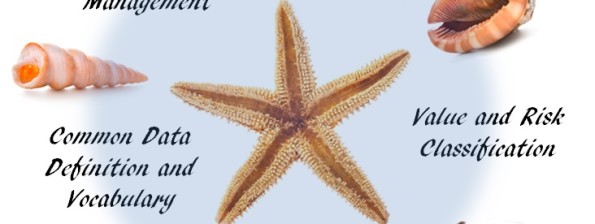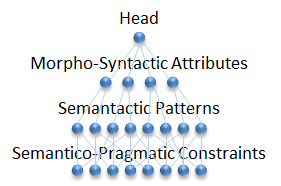Tag Archives: semantics
10 Jun Knowledge is the New Foundation for Success

Joe Roushar – June 2020 Retooling for The Beginning of a New Age This year, 2020 will be the turning point in AI adoption because successful implementations will be available to small and large organizations without breaking the bank. Success will be measured in specific business value achieved. Affordability will dramatically improve because of AI […]
30 Nov Architecting Meaningful Relationships

Joe Roushar – November 2016 Getting the Knowledge Out How do you know — anything? Chemicals and electrical impulses splash around in the brain, and voila: we understand the meaning of life, the universe and everything. We have looked at how synapses connect neurons, and how taxonomical and other associations connect concepts, but is it […]
20 Oct High 5s of Intelligent Information Modeling

Joe Roushar – October 2015 Quantitative data is easy to make into useful information by establishing correct associations and providing human experts with the right slicing and dicing tools. But in its native format, data is not independently meaningful. Many qualitative content sources are narrative, born as whole information. Such content is advanced beyond data because of the built-in associations, but inevitably […]
06 Aug Data Convergence at Velocity

Joe Roushar – August 2015 Knowledge workers in all types of organizations need information in internal (to the organization) databases, intranet sites and documents, as well as information in external databases, web pages and documents. The promise of data convergence includes the lofty goal of providing, from a single request, structured and unstructured information from both internal […]
10 Dec Measuring Knowledge

Sometimes you need to know about your knowledge. When you’re in the middle of trying to build a system that knows stuff, you may ask, how much does the system know after this training or learning cycle as a percent of the total knowable amount? When we test students in their learning cycles, we use a […]
15 May Analyzing Semantics

Semantics The stratum of semantics is usually associated with meaning. Throughout the 1980s, when I was in college, semantics was viewed as more and more important in text-understanding systems. One aspect of semantics that has received a great deal of attention is thematic or case roles, which can be very useful in defining the roles of words or […]
13 May Patterns at the Boundaries

Morphological Patterns As we have shown in prior posts, we mentally process patterns both at a physical level between neurons and in brain layers, and at a cognitive level in recognition and reasoning. 3-DG uses attributes, patterns and constraints for morphological analysis, as well as analysis at other levels and between other strata. The 3-DG lexicon is organized […]
09 May Stratum Morphology

Morphology Morphology is about what happens to words to change their structure, impacting their meaning and usage. In English, we add -s or -es at the end of words to make them plural (guy –> guys, time –> times). Japanese, on the other hand, uses reduplication (hito –>hitobito, toki –> tokidoki) to make words plural. Adding to words, affixation, has three […]






